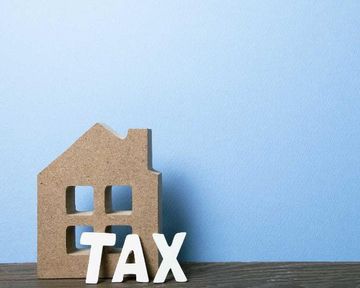Conveyancing Fees: What Are You Paying For?
When you're in the process of buying or selling a property, you're likely to encounter various costs and fees in addition to the purchase price. One of these expenses is conveyancing fees, which are an essential part of every property transaction. But what exactly do conveyancers do, and why are their services so important for both buyers and sellers?
What Is Conveyancing?
Conveyancing is the process of transferring legal ownership of fixed property from one person – or a company or trust – to another. It involves a series of intricate steps to ensure that the property's legal transfer is executed correctly and in compliance with all necessary regulations. Conveyancers play a pivotal role in this process, and here's a closer look at their responsibilities:
1. Document Review: Conveyancers begin by examining the deed of sale, ensuring it adheres to all legal requirements. They meticulously check for any discrepancies that could hinder the transaction.
2. Information Collection: They collect crucial documentation from various sources, which may include the seller's bank, compliance certificates from the seller, and municipal rate clearance certificates. These documents are essential for verifying the property's legal status and ensuring there are no outstanding debts or encumbrances.
3. Drafting Documents: Conveyancers are responsible for drafting numerous documents, including the power of attorney to pass transfer, declarations of marital status, identity, and solvency for both the seller and buyer, and any required bond registration documents. The preparation of these documents requires a keen understanding of legal terminology and precision in drafting.
4. Legal Expertise: Conveyancers often handle complex transactions involving property subdivision, consolidation, or servitude registration. Their specialized knowledge and meticulous attention to detail are vital in these situations. They ensure that all legal requirements for these unique scenarios are met, providing a crucial layer of protection for all parties involved.
Why Are Conveyancers Necessary?
The real estate transaction process can be time-consuming and complicated, especially when dealing with unique circumstances. Conveyancers are not just facilitators but also protectors of the rights of both buyers and sellers during one of the most significant transactions of their lives. Furthermore, property ownership is highly regulated by the government to maintain a high standard of land registration, emphasizing the importance of having qualified conveyancers involved.
To safeguard these standards, only attorneys who have successfully passed the national conveyancing examination are authorized to provide these services. In fact, no property sale can be concluded without the involvement of a qualified conveyancer. This ensures that all legal requirements are met and that the interests of all parties are protected.
Who Pays for Conveyancing Fees?
Conveyancing fees are typically paid by the buyer, as conventionally, conveyancers are appointed by the seller. This practice exists because sellers are considered to be at greater risk during the transaction, and they have more to lose if things go awry. However, it's important to note that neither this arrangement nor the buyer covering the fees is set in stone. Buyers and sellers can negotiate different terms in their agreement of sale, giving them flexibility in sharing or covering these costs.
The Value of Conveyancers
While it's true that conveyancing fees can be a substantial expense in the property buying process, the value that good conveyancers provide extends far beyond merely fulfilling a legal requirement. Without them, the property transaction process would be intimidatingly complex. Thanks to their expertise, most property sales proceed smoothly and efficiently. They act as the essential link between all parties involved, ensuring that the transfer of ownership is executed correctly.
In addition to their legal responsibilities, conveyancers offer the following benefits:
1. Risk Mitigation: Conveyancers play a crucial role in mitigating the risks associated with property transactions. They ensure that the property's title is clear and that there are no hidden legal issues that could jeopardize the buyer's or seller's interests. This thorough due diligence helps prevent costly legal disputes in the future.
2. Assistance with Financing: For buyers, conveyancers often assist with securing mortgage financing by working closely with the lender. They ensure that all necessary documentation is prepared and submitted to the bank, streamlining the financing process.
3. Streamlined Process: Conveyancers are experts in managing the complex paperwork and regulatory requirements involved in property transactions. They ensure that all documents are completed accurately and submitted on time, keeping the transaction on track.
4. Knowledge of Local Regulations: Real estate regulations can vary from one location to another. Conveyancers have a deep understanding of local laws and regulations, which is invaluable in ensuring that the transaction complies with all legal requirements in a specific area.
5. Facilitating Communication: Conveyancers serve as intermediaries between the buyer, seller, banks, and government agencies. Their role includes ensuring that all parties are informed and in compliance with the transaction's progress. Effective communication can prevent misunderstandings and delays.
The Legal Requirement and Protection
Conveyancers are not optional; they are a legal requirement in property transactions. This mandate exists to protect the rights of both buyers and sellers and to maintain a high standard of land registration. Government authorities take property ownership very seriously, and conveyancers play a pivotal role in upholding these standards.
Negotiating Conveyancing Fees
While conveyancing fees are typically borne by the buyer, there is room for negotiation. The convention of having the buyer cover these costs is based on the premise that sellers are at greater risk during the transaction. However, this is not set in stone, and buyers and sellers can negotiate different terms in their agreement of sale. This flexibility allows for more equitable cost-sharing arrangements that both parties find agreeable.

